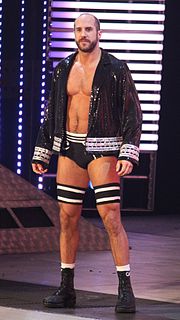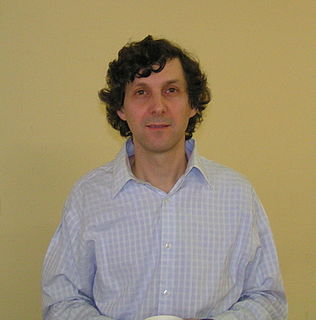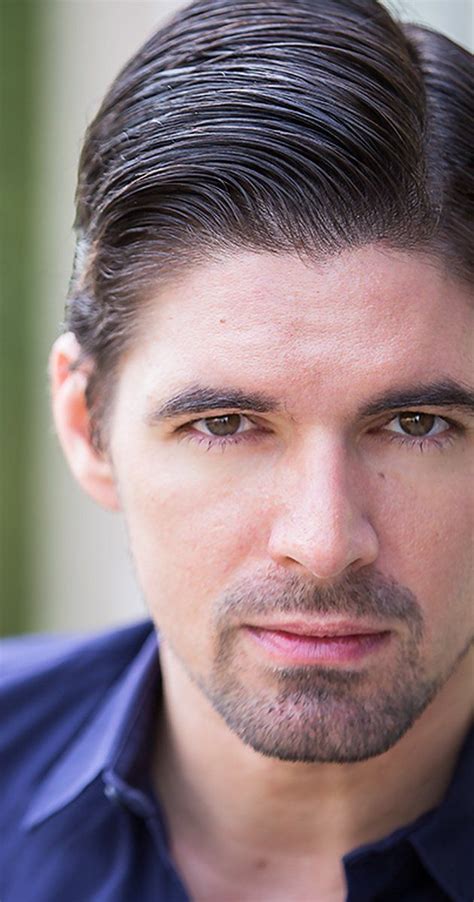A Quote by Richard Bach
Languages are fluffy big pillows stuffed between nations - what others say is muffled and nearly lost in them, and when we speak their grammar we get feathers in our mouth. It's worth it. What pleasure to phrase an idea, even in child's words, slowly, and sail it across the gulf in another language to a different-speaking human being!
Related Quotes
My brain can form thoughts that come out through my mouth. The problem is sometimes I stumble the words because I speak five different languages - we know all that - so the thing is, I like to speak the language that everybody speaks all around the world, that the WWE Universe loves... that's the language of wrestling that I do in the ring.
All people in the world - who are not hermits or mutes - speak words. They speak different languages, but they speak words. They say, "How are you" or "I'm not feeling well" all over the world. These common words - these common elements that we have between us - the writer has to take some verbs and nouns and pronouns and adjectives and adverbs and arrange them in a way that sound fresh.
And there are also languages that divide nouns into much more specific genders. The African language Supyire from Mali has five genders: humans, big things, small things, collectives, and liquids. Bantu languages such as Swahili have up to ten genders, and the Australian language Ngan’gityemerri is said to have fifteen different genders, which include, among others, masculine human, feminine human, canines, non-canine animals, vegetables, drinks, and two different genders for spears (depending on size and material).
Personally I think that grammar is a way to attain Beauty. When you speak, or read, or write, you can tell if you've spoken or read or written a fine sentence. You can recognise a well-tuned phrase or an elegant style. But when you are applying the rules of grammar skilfully, you ascend to another level of the beauty of language. When you use grammar you peel back the layers, to see how it is all put together, to see it quite naked, in a way.
Many accents and languages is part of myself has definitely played an important role in who I am today as an actor. I feel that speaking five languages has given me the opportunity to work in many different countries across our globe and it makes me understand better the value of each project when it is written in its original language.
One of my favorite literary theorists, Mikhail Bakhtin, wrote that the defining characteristic of the novel is its unprecedented level of "heteroglossia" - the way it brings together so many different registers of language. He doesn't mean national languages, but rather the sublanguages we all navigate between every day: high language, low language, everything. I think there's something really powerful about the idea of the novel as a space that can bring all these languages together - not just aggregate them, like the Internet is so good at doing, but bring them into a dialogue.
By a generative grammar I mean simply a system of rules that in some explicit and well-defined way assigns structural descriptions to sentences. Obviously, every speaker of a language has mastered and internalized a generative grammar that expresses his knowledge of his language. This is not to say that he is aware of the rules of the grammar or even that he can become aware of them, or that his statements about his intuitive knowledge of the language are necessarily accurate.
All the kids are learning different languages. I asked them what languages they wanted to learn, and Shi is learning Khmai, which is a Cambodian language; Pax is focusing on Vietnamese, Mad has taken to German and Russian, Z is speaking French, Vivienne really wanted to learn Arabic, and Knox is learning sign language.
If you go back a century in Europe, all over the place people were speaking different languages. There were dozens of languages in France and Italy, and they're all called French [and Italian], but they were not mutually comprehensible. They were different languages. And they have mostly disappeared in the last century or so. Some are being preserved, like Welsh, some are being revived, like Basque or Catelan to some extent. There are plenty of people in Europe who can't talk to their grandmother because they talk a different language.
Between two beings there is always the barrier of words. Man has so many ears and speaks so many languages. Should it nevertheless be possible to understand one another? Is real communication possible if word and language betray us every time? Shall, in the end, only the language of tanks and guns prevail and not human reason and understanding?
Therefore, the two processes, that of science and that of art, are not very different. Both science and art form in the course of the centuries a human language by which we can speak about the more remote parts of reality, and the coherent sets of concepts as well as the different styles of art are different words or groups of words in this language.
I certainly self-police my language depending on who I'm talking to. I try to be very careful about using filler words, about not drawling certain vowels, even when I can't say "drawl" without drawling. That's kind of sad, because self-policing inhibits communication. You're more focused on the words coming out of your mouth or that should not be coming out of your mouth than making a connection with the person you're speaking to.
Most English speakers do not have the writer's short fuse about seeing or hearing their language brutalized. This is the main reason, I suspect, that English is becoming the world's universal tongue: English-speaking natives don't care how badly others speak English as long as they speak it. French, once considered likely to become the world's lingua franca, has lost popularity because those who are born speaking it reject this liberal attitude and become depressed, insulted or insufferable when their language is ill used.





































